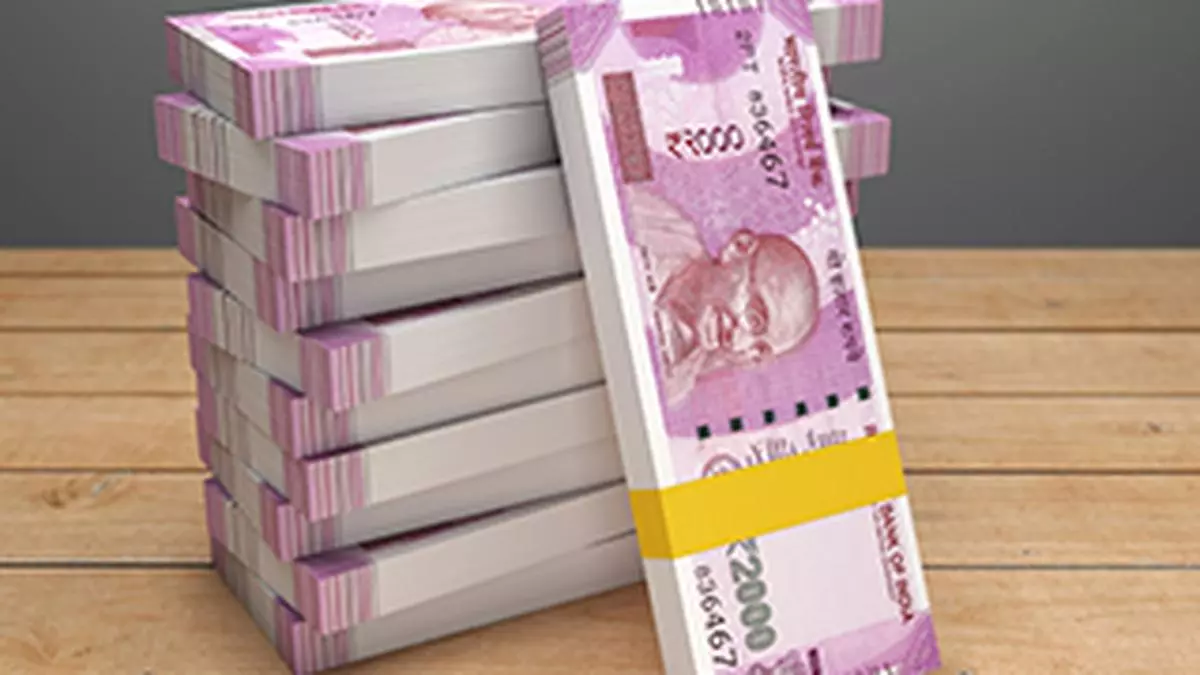Withdrawal of ₹2,000 notes: Banks plans to step up vigil on Jan Dhan Yojana accounts
Banks will closely monitor Jan Dhan Yojana (JDY)/Basic Bank Deposit (BSBD) accounts for any unusual deposits during the entire period – May 23, 2023, to the end of September 2023 – when the $2,000 bills are withdrawn from circulation.
The protest against JDY/BSBD accounts is in light of the potential for these account holders to be used to receive and transfer fraudulent funds.
-
is reading: Where did all the 2000 rupee notes go?
During the 2016 demonetization of the €500 and €1,000 banknotes, a significant amount of these SBNs (Specified Banknotes) flowed into the following special types of accounts: Basic Bank Deposit Account (BSBDA); PMJDY Accounts; Kisan Credit Card (KCC); dormant or non-performing accounts; accounts of cooperative banks with scheduled commercial banks; bullion dealer/accounts jewelers; and loan accounts, according to a 2017 RBI report.
-
BL Explanation. 2,000 banknotes have now been withdrawn. How is this different from de-trading in 2016?
According to a Mint Street note on “Demonetisation and growth of bank deposits”, drawn up by RBI officials Bhupal Singh and Indrajit Roy in 2017, prior to the termination of the OTC exchange facility in bank branches on 25th November 2016, about INR 37,000 crore SBNs were tendered .
INR 2,000 deposit/cash
Public sector banks are expected to make the exchange/deposit of the €2,000 banknotes smooth to the public as they have been given three days to make proper arrangements for this, and the withdrawal of these banknotes will be fully distributed. longer period – 130 days.
It is understood that the Ministry of Finance has requested public sector banks to make the $2,000 withdrawal process hassle-free. The public faced hardship during the 2016 demonetization of the ₹500 and ₹1,000 banknotes.
-
is reading: What does the Center’s decision to cancel the Rs 2,000 note mean for the Indian economy?
Unlike in 2016, bankers say, when they only had one day to prepare an application demonetization scheme And the window for exchange/deposit of $500 and $1,000 notes was only 50 days, this time, the public has 130 days to exchange/deposit the $2,000 notes.
Therefore, there may not be any rush to exchange/deposit banknotes in the branches.
The SBI amends the instructions
State Bank of India has partially amended its previous instructions (issued on May 19) for the exchange of $2,000 worth of notes. As per the amended bank instructions (issued on May 20), the possibility of cashing $2,000 banknotes will be allowed to all members of the public up to a maximum of Rs 20,000 at a time without any demand slip.
Furthermore, no identification is required by the bidder at the time of exchange.
-
is reading: The government clarifies that the INR 2,000 note will continue to be legal tender after September 30.
As per previous instructions issued by the SBI, a person who wanted to exchange the €2,000 banknotes was required to show the original proof of identity – one of the six officially valid documents (Aadhaar Card, Driving License, Voter ID Card, Passport, NREGA Card, Resident . Register).
The SBI requested its local head offices to arrange accordingly and extend cooperation to members of the public so that the exercise could be conducted smoothly and smoothly without any disturbance to the public.
All SBI branches have stopped issuing INR 2,000 notes. ATMs/Cash Recyclers will be reconfigured accordingly.
Deposits of $2,000 in notes will be permitted into accounts maintained by SBI in the usual manner – without restriction and subject to compliance with current KYC standards and other applicable legal requirements.
There will be no limit to the quantity and value of INR 2,000 notes to be credited to the account held with the Bank.
Branches have been required to comply with cash transactions and suspicious transaction requirements, where applicable.
All bank branches will provide the facility of exchanging Rs 2,000 notes to all members of the public up to a maximum of Rs 20,000 at a time.
To provide deposit/exchange facilities to persons residing in remote/unbanked areas, SBI Chambers may consider the use of mobile vans, if required.
Furthermore, Business Correspondents may also be allowed to exchange cash of US$2,000 up to a maximum of €4,000 per day to the account holder.
